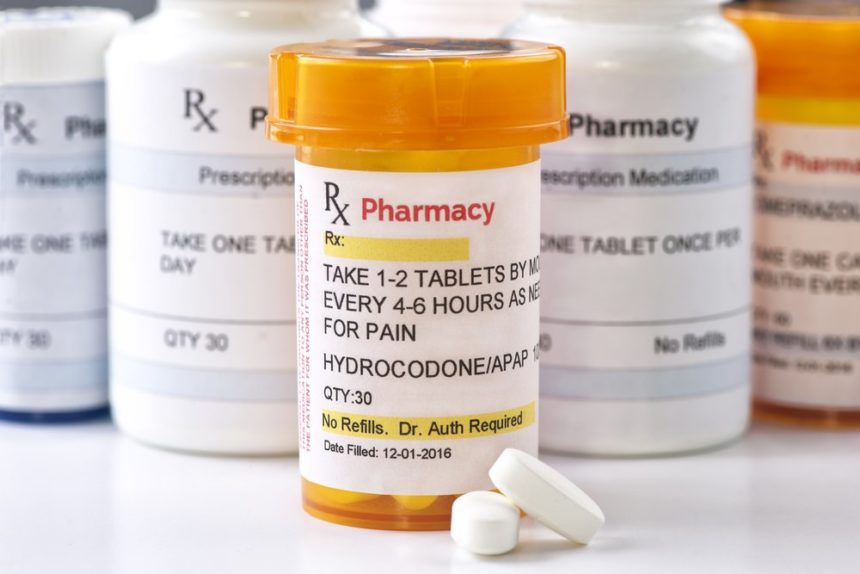Research is vital to better understand what may drive our behaviors, habits and ultimately our addictions especially to painkillers. Understanding exactly how our brain functions under certain conditions can open up the door to finding a solution to addiction. Since addiction is a chronic brain condition, it only makes sense that almost all research is focused on the brain, usually using a species with similar brain structure and function.
Neuron Identified as Potential Culprit
Table of Contents
Recently, scientists and researchers at Duke University identified a neuron, which they believe may be the main culprit in habituation of negative behaviors. This neuron is referred to as a “fast-spiking interneuron” or FSI for short. They consider this neuron to be the “master controller” of habits. Over time, the human brain has evolved in a manner that increases efficiency of brain activity and these “fast-spiking interneurons” are a prime example. Case in point; there are certain habits that most if not all human beings have such as hand washing before meals or after going to the bathroom.
“Fast-spiking interneurons” allow us to develop these habits as an automatic response to certain stimuli without having to think about it which in turn frees up space elsewhere in the brain. Pretty sweet, right? Well, it is, but this improved efficiency comes at an unforeseen cost. The brain is intelligent enough to realize when a certain behavior is repeated over and over again and it begins to adapt over time. The brain realizes when you’re about to engage in this behavior based on certain stimuli, and the brain carves out pathways based on said stimuli triggers.
Let’s say for example that I’m using heroin intravenously on a weekly basis. Once a week I follow the same routine; I drive to the same spot, purchase heroin from the same person, use the heroin in the same location and listen to the same music while doing it. My brain will begin to adapt to this routine by triggering this compulsion based on certain stimuli or triggers. I always use on Sundays, but this time it’s a Saturday and for whatever reason, I needed to travel a similar route to the drug dealer’s location. As I head that way, my brain realizes this and begins to prepare and trigger me for using heroin. This can lead me to use heroin on a day I hadn’t originally planned on it to begin with.
Over time this can become a real problem as I continue to become exposed to certain stimuli, which triggers a “go” response in my brain; now I’m becoming addicted. Since it just so happens that “FSI” is linked with 95% of neurons that trigger the “stop/go” pathways these habitual compulsive behaviors can become extremely hard to break. Over time as I continue to repeat these negative compulsive behaviors, the pathways in my brain that support this routine become more and more carved out and entrenched. This is why it is so difficult to break an addiction, especially if you have been using regularly for an extended period of time.
These “fast-spiking interneurons” were discovered in mice at Duke University during a study on habituation and the brain. One major breakthrough in addition to the discovery of these particular neurons is a potential way to treat addiction to painkillers. Researchers found that when the mice were given a drug that shut down their “FSI” the mice returned to a pre-habit stage. This discovery has tremendous implications for the addiction treatment field. Imagine if we can use a drug similar to this on human beings? Our brains are similar in many ways, so this isn’t such an inconceivable notion.
Research Leads to Non-Addictive Opioids and Painkillers
I realize that non-addictive opioid painkillers sounds like a sick joke, but new research is suggesting that the development of such a drug is a very real possibility. Connecticut-based Cara Therapeutics is in the process of developing opioid-based painkillers that do not cross the blood-brain barrier and get patients high. Even more interesting is the fact that it won’t cause the same side effects that traditional opioids do, which range from nausea and lethargy all the way up to respiratory depression and death. The compound Cara currently has in development is called CR845. Gavril Pasternak, an opioid researcher at the Memorial Sloan-Kettering Cancer Center said about a dozen drugs are currently being developed with the same goal in mind; a non-addictive opioid without the traditional opioid-related side effects, but that more research is needed.
Can you imagine how incredible it would be to be able to prescribe someone in severe or chronic pain a opioid painkiller without having to worry about addiction, side effects or death? This would be a huge step forward for the pharmaceutical industry and excellent news for pain patients. Some people are skeptical such as Van Ingram, executive director of the Office of Drug Control Policy in the state of Kentucky. “From the Kentucky perspective, we just have not had good experiences with opioid drugs” – Kentucky is one of the hardest hit states by the prescription painkiller opioid epidemic where they experience more than 1,000 drug overdose deaths per year.
Although people like Van Ingram’s skepticism is probably warranted, we still need to remain hopeful. Research is taking us to new heights every day, and unfortunately, at this point hope is all we have. Lives are depending on it.
Freedom From Addiction: Found Here
If you or a loved one is suffering from alcoholism or addiction to painkillers, understand that you are not alone in your struggles! If you are ready to change your life and finally be free of your addiction, then Find Addiction Rehabs can help.
Our representatives give you a jump start to recovery by aligning you with the right provider to meet your needs among our nationwide, accredited partner facilities. Give yourself a break and reach out now to start your sobriety journey today!
Deborah Tayloe is a freelance writer specializing in health and sciences. Deborah earned a B.S.Ed. in Secondary Education/English, accompanied by a Spanish minor. Her writing expertise allows her to craft engaging, impactful articles to help people be well.
In addition, she holds a fully accredited Certificate of Natural Medicine and is a certified Herbalist. Through her understanding of complementary medicine, Deborah helps medical professionals give people the information they need to embrace natural approaches to wellness.
When she’s not working, Deborah trains for 5K races and advocates for animal rights.


